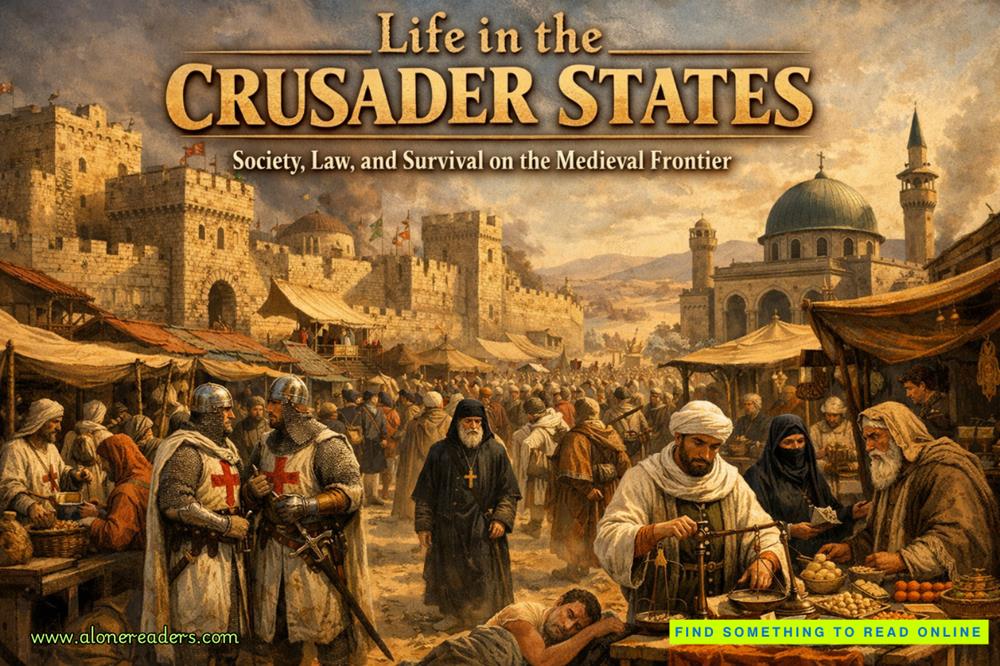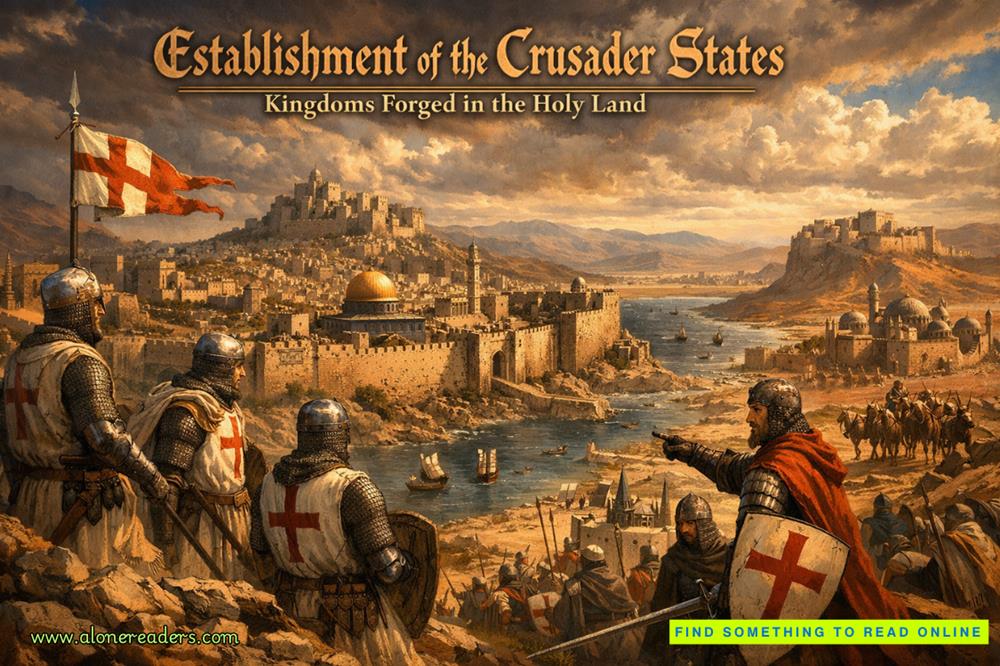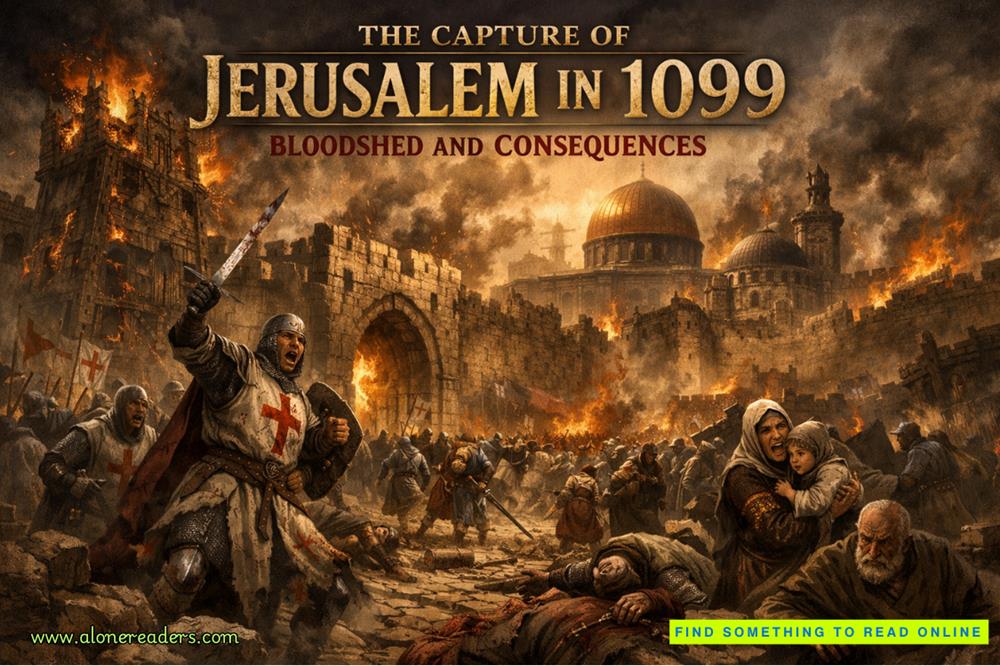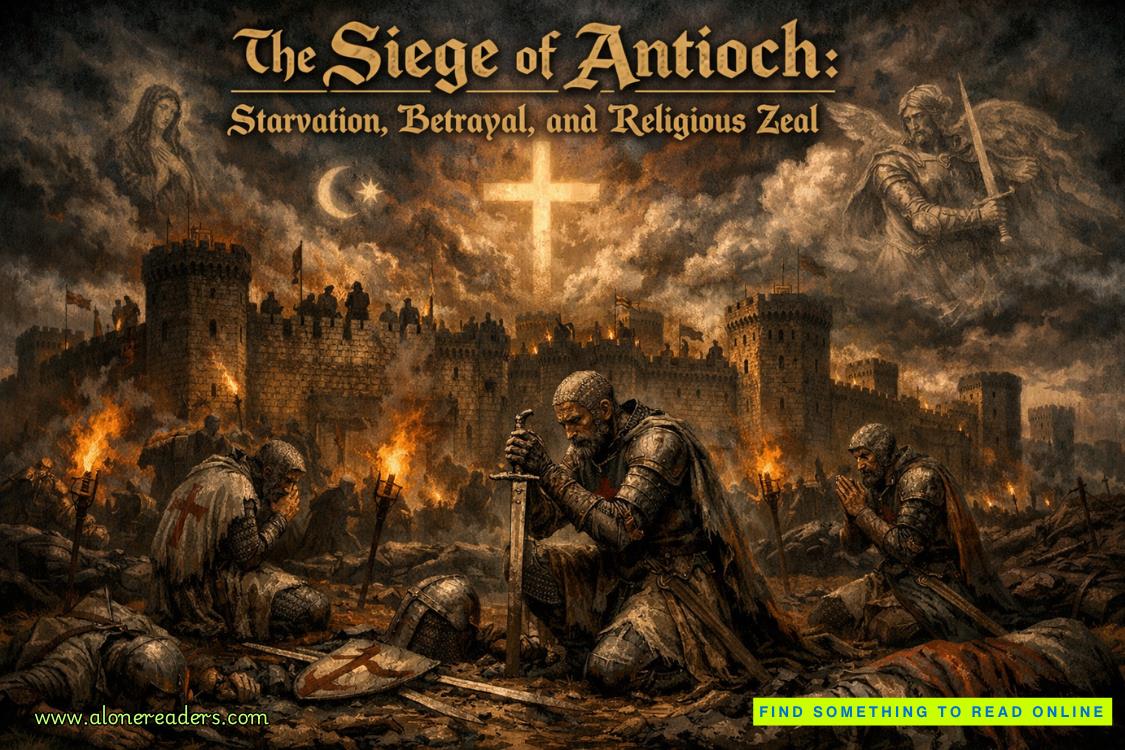Torin said, “As am I.”
We pulledup in front of a squat stone tavern, its thatched roof shining damp in the midday drizzle. Unlike the lonely wayside, this place sat alive in the center of the village — neighbors talking at the doorway, carts clattering past, a boy carrying a bucket of water. It didn’t look like much from the outside, just another low stone building, but the smell of food drifted into the street, making me think,oh yes, time to eat.
Torin helped me down and tied the horses to a post. Together we ducked through the low door, and into a busy room. This tavern was brighter than the last two stops, firelight flickering off whitewashed walls, the air heavy with peat smoke and steam. Men and women crowded shoulder to shoulder on benches with bowls and mugs in hand, their conversations punctuated by bursts of laughter.
We found a place at the end of a long trestle table, and within moments a woman in a brown apron set down two mugs of ale.
Torin and I both took big gulps of the ale. I was so thirsty; although it tasted faintly of hay, I didn’t care anymore. Even the weakest, weirdest ale was better than nothing but creek water for days.
The woman in the apron rushed off and returned with steaming bowls of cloudy broth, thick with barley and dotted with shreds of meat. Beside each she placed a warm oatbannock, the heat softening a wedge of cheese she dropped on top.
Torin rubbed his hands together, excitedly. “Och, bannocks and cheese. Tis nae the soft goat cheese I dreamt of, but close enough. This will do verra fine.”
The woman spotted Dude, sauntering under our bench, trilling and winding around Torin’s calves, and made a big delighted commotion, clapping her hands at the sight of such a big cat. She rushed off to get Dude some milk.
I tore into the bannock, the smell making my mouth water. “What’s this meat?”
Torin already had his mouth full of food and spoke around it, “Mutton, och tis delicious, tuck in.”
It was a thick barley brose with mutton and leeks, we both dipped our oat bannocks in it. Torin passed a tiny piece of mutton down to Dude and the woman brought the bowl of milk she had promised him, petting him, and saying, “Och, ye’re a fine beastie, a good cat!”
Every time the tavern door opened, daylight spilled into the room, and the world outside intruded — lowing cattle, drovers shouting, and the creaking of wagons as they rolled by.
Torin ordered us another round of ale. The woman delivered it with more bannocks, cheese, and a bit of berry conserve. She liked us. Or maybe she just liked Dude, who was sprawled purring under our bench. Torin said, “She will be speakin’ on the majestic cat for years.”
I slathered the berries across the bannock and chewed contentedly. It was sweet and tart, basically perfect. “This is so good, can we live here? Can we never leave?”
“We must, and we ought tae finish it quick. We hae ground tae cover afore Kirriemuir, and I would rather reach it with the sun still up.”
So I finished my meal, chewed the last of our bread, and drained my ale. We stood to go out, Torin pinching a piece of mutton for Dude on the journey. Then we left the tavern and stumbled into the brightness.
The sky had the high blue color of having been washed with rain, the air smelled of rain-soaked grass and muddy earth. Our track followed the river at first, the water flowing from the rain, then we turned east into a wide stretch of scrub and blooming heather.
It was beautiful. The colors of the land mirrored the threads of Torin’s plaid. His pale yellow shirt matching the dry straw, the green of the embroidery was the color of the grass, his blue cloak the faded color of sky. He was built like the mountains that ringed us on all sides.
He said, “We hae a few more hours, we will be there well afore nightfall and there winna be rain.”
I said, “Finally, things are working as they should.”
22
LEXI
1558 - FROM GLENESK TO KIRRIEMUIR
By mid-afternoon the land began to soften — hills rolled by instead of rearing, the ground was dotted with gorse and small stands of birch. Stone walls appeared, hemming in fields of grazing sheep. The path widened, packed with hoof prints and the deep grooves of wagon wheels.
We rode for a long time. I said, “My hips ache.”
“Aye, ye hae been a long time on the horse without bein’ used tae it.”
I nodded.
About ten minutes later, I said, “And my shoulders — why does everything ache so much? My elbows.” I flexed and straightened my arms. “It’s all achy, do you feel achy?”
He looked back at me with his eyes narrowed. “Nae.”
I rolled my neck. “It’s fine, we’ve just been riding a lot. That’s all.”















